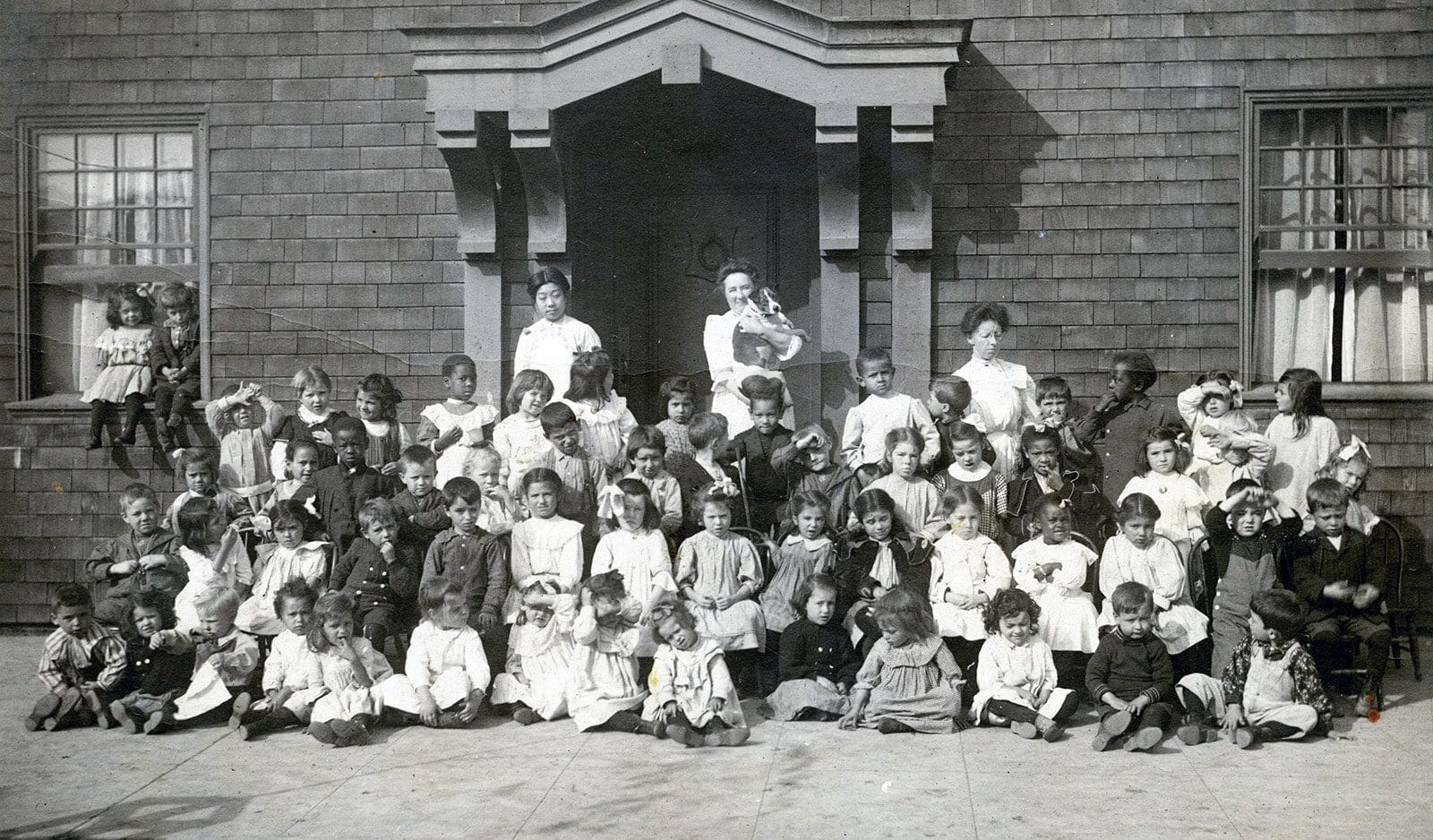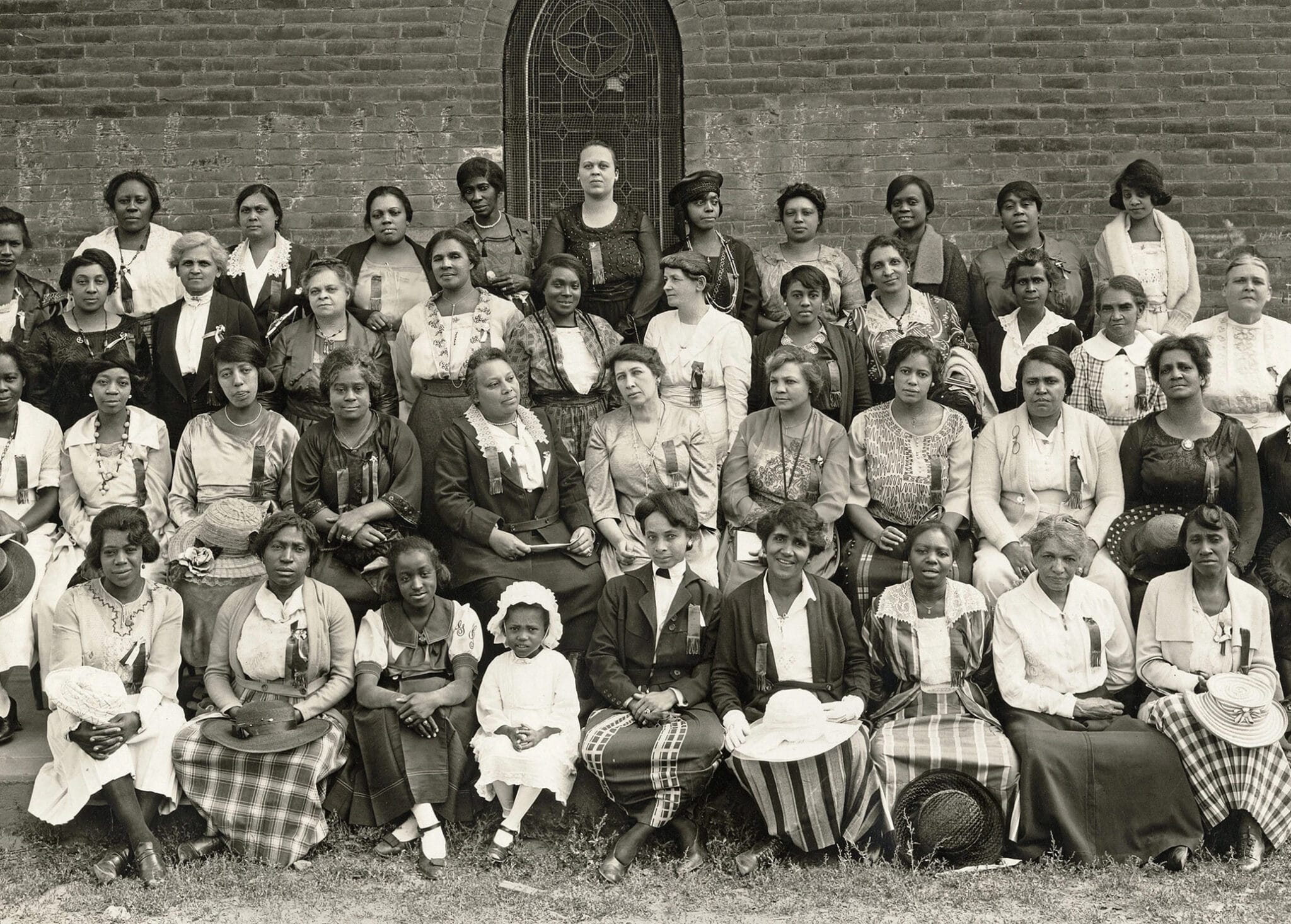Early Childhood History, Organizing, Ethos, and Strategy Project
ECHOES connects early care and education (ECE) today with its history and activism. Discover the origins of inequities for children, families, and educators and why the fight for a more just system continues. Learn about past and current efforts by courageous teachers, parents, and other social justice activists using their collective power for change.
About ECHOES
How did we come to have our present-day early care and education (ECE) system? How do inequities echo through time in the system? How have people built collective power to demand a just ECE system? We created ECHOES to provide an accessible way for people to explore these critical questions and to learn from, be guided by, and take inspiration from those before us who have struggled to make change.
ECHOES tells the many histories of the ECE system, undoing the harmful distinctions between child care and early education that most ECE histories have reinforced. While the focus is most often on the perspectives of White women in formal leadership roles and White men with access to power and influence, ECHOES spotlights the untold stories of the women who did the actual teaching of and caring for young children. ECHOES explores the voices and visions of women of color, immigrant women, and working-class women who have made significant contributions but have been left out of most ECE histories. Their experiences, contributions, and activism demand our attention and are centered in ECHOES.
You are invited to explore and engage with archival materials, stories, papers, audio and video clips, historical timelines, and contemporary material. ECHOES is an interactive site and learning space for anyone trying to change the early care and education system or otherwise engaged with the system (for example, as educators, parents, community organizers, faculty members, students, and policy leaders). Our focus on history and activism is inspired by the Worthy Wage activists in the late 20th century who recognized that they had to learn about the history of the ECE system as a means to build their knowledge, skills, and confidence as empowered agents of change.
“The full history of early care and education has not yet been told. And that is affecting the decisions and mistakes we keep making today. ECHOES goes deeper than any history project to center the experiences of educators and especially teachers of color whose history has too often been obscured or erased.”
Miriam Calderón
Chief Policy Officer, Zero to Three
Formerly, Assistant Deputy Secretary for Early Learning, U.S. Department of Education
ECHOES Publications
The Kindergarten Lessons We Never Learned
Marcy Whitebook, Claudia Alvarenga, Barbara Zheutlin | September 15, 2022
Working Toward Early Childhood Education Equity
Marcy Whitebook, Rachel E. Williams | September 15, 2022
Rights, Raises, and Respect: The Early Educator Compensation Movement
Peggy Haack, Rosemarie Vardell, Marcy Whitebook | September 15, 2022
Center Educators’ Activism
Ashley Williams, Peggy Haack, Marcy Whitebook | September 15, 2022
Uncovering the Role of Early Childhood in Black Women’s Clubs Work Towards Racial and Gender Justice
Rachel E. Williams | September 15, 2022
Anna Evans Murray: Visionary Leadership in Public Kindergartens and Teacher Training
Marcy Whitebook, Rachel E. Williams | March 17, 2021
Haydee B. Campbell: Expanding Education for Black Children and Opportunities for Black Women
Rachel E. Williams, Marcy Whitebook | February 25, 2021
Josephine Silone Yates: Pedagogical Giant and Organizational Leader in Early Education and Beyond
Rachel E. Williams | February 4, 2022
How to Cite ECHOES
Original materials on the ECHOES site not otherwise published or attributed should be cited as follows:
Early Childhood History, Organizing, Ethos and Strategy, a project of the Center for the Study of Child Care Employment (2022) : Center for the Study of Child Care Employment, University of California, Berkeley.
Retrieved from https://cscce.berkeley.edu/projects/echoes/
©2022 Center for the Study of Child Care Employment
Questions about permission to reproduce ECHOES materials should be directed to the CSCCE Information Department, cscceinfo@berkeley.edu.
Acknowledgments
ECHOES is generously supported by the Heising-Simons Foundation.
The ECHOES Team includes Marcy Whitebook, Project Lead, and team members Claudia Alvarenga, Peggy Haack, Andrea Hernández, Silvia Muñoz, Rosemarie Vardell, Rachel Williams, and Barbara Zheutlin.
Design: The ECHOES website and accompanying material was built by and designed in collaboration with Benjamin Kuehn and Ana Fox-Hodess.
Editor: Deborah Meacham.
ECHOES could not have been accomplished without the advice and assistance of current and former CSCCE staff, especially the History Work Group: Lea Austin, Hopeton Hess, Caitlin McLean, Abby Copeman Petig, Penelope Whitney, and Ashley Williams.
Thanks also to other CSCCE staff members who supported the ECHOES project: Tobi Adejumo, Cynthia Dunn, Da-yup Kim, Yoonjeon Kim, Elena Montoya, Wanzi Muruvi, Krista Olson, Anna Powell, Jennifer Recinos, Jasmine Rivera, Marisa Schlieber, and Ferheen Abbasi.
We especially appreciate the time, advice, thought partnership, and review provided by many colleagues over the several years this project took shape: Richard Berger, Olivia Bloechinger, Miriam Calderón, Raúl Chávez, Ira Cutler, Rory Darrah, Deanna Gomby, Sabine Hattinger-Allende, Joan Lombardi, Justine Modica, Stacey Oliker, Carl Price, Sharon Ryan, Sandra Smith, Ruby Takanishi, and Linda Wilshusen.
We extend special thanks to: Dan Golodner, Archivist at the Center for the Child Care Workforce Collection of the Reuther Library at Wayne State University; Rebecca Federman, Electronic Resources Coordinator at the New York Public Library; and the archivists who helped us locate historical documents. ECHOES was greatly assisted by initial research grants from the New York Public Library and the Radcliffe Institute.
The views presented in ECHOES are those of the ECHOES team and may not reflect the views of the project’s funders or those acknowledged for lending their expertise or providing input.



